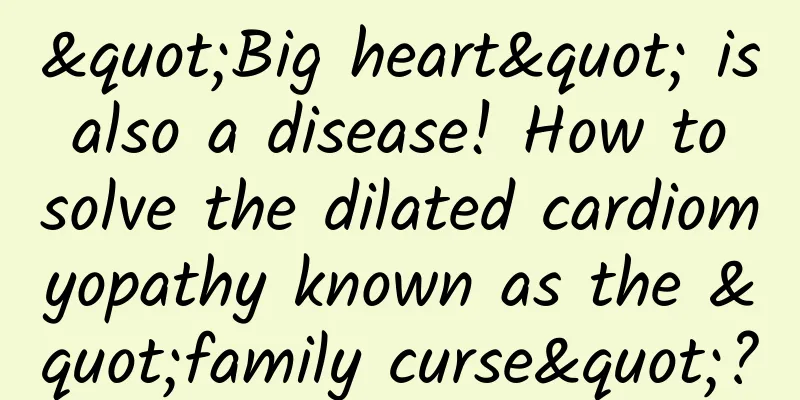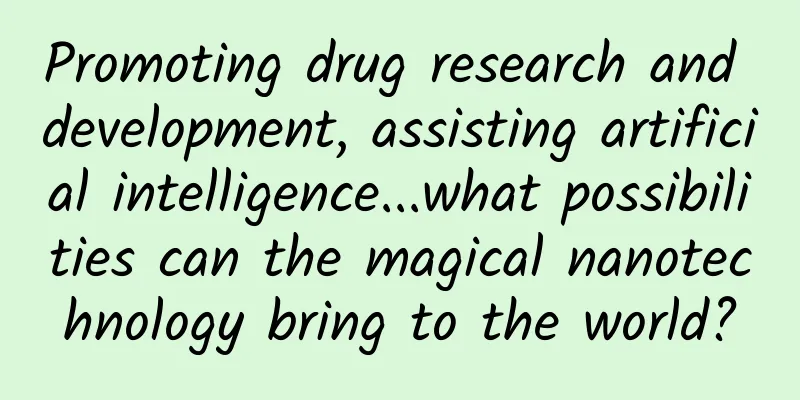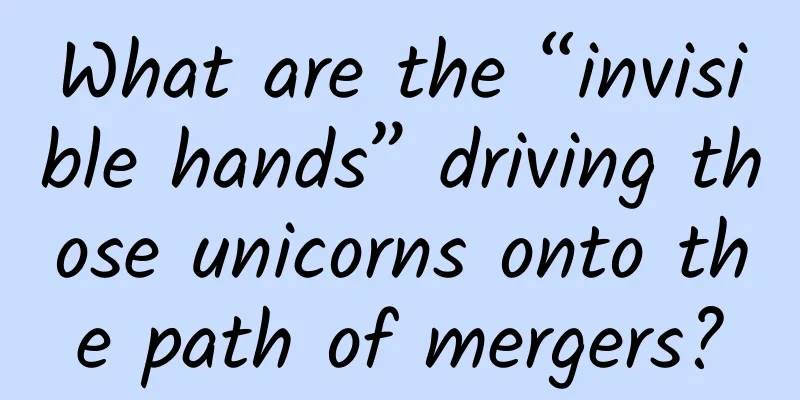"Big heart" is also a disease! How to solve the dilated cardiomyopathy known as the "family curse"?

|
Review expert: Wang Xin, deputy chief physician of the Department of Cardiology, Jilin People's Hospital Recently, an urban medical drama titled "Questioning the Heart" has been popular on the air. Along with the film and television works, various heart-related diseases have also entered the public eye. In the TV series, there is a genius doctor named Lin Yi, who works in cardiac surgery and comes from a family with hereditary dilated cardiomyopathy. He initially chose the profession of doctor to, to some extent, lift the "curse" of his family. However, as the plot develops, he gradually realizes that even if he is a genius, he is powerless to save some special diseases. Source | Stills from the TV series "Conscience" What exactly is the dilated cardiomyopathy in the play? What is so special about it? 1 What is dilated heart disease Dilated cardiomyopathy (DCM) is a heterogeneous cardiomyopathy, a group of syndromes caused by damage to the physiological structure of cardiac muscle or pathological changes . It is a myocardial disease characterized by left ventricular or biventricular dilation and systolic dysfunction. Diagnosis requires the exclusion of valvular heart disease, congenital heart disease, hypertension and ischemic heart disease. The main manifestations of dilated cardiomyopathy are myocardial cell hypoxia , arrhythmia, thromboembolism and even cardiogenic shock characterized by dyspnea, fatigue, chest pain and ankle swelling . The prognosis of dilated cardiomyopathy is poor, and the 5-year survival rate after diagnosis is only about 50% . In layman's terms, the heart is like a pump. Through continuous heartbeats, it pumps arterial blood to all important organs throughout the body for blood supply and oxygen supply. It can also return venous blood to the heart. After the venous blood returns to the heart, it is pumped to the lungs. The lungs have oxygen inhaled, and the venous blood and oxygen combine to become arterial blood again, thus completing a cycle. However, patients with dilated cardiomyopathy have excessive heart expansion and problems with their contractile function, which can lead to dyspnea during activities and decreased activity tolerance; symptoms of left heart failure such as nocturnal paroxysmal dyspnea and orthopnea; symptoms of right heart failure such as decreased appetite, abdominal distension, and lower limb edema; when combined with arrhythmias, palpitations, dizziness, persistent and intractable hypotension, amaurosis, and even sudden death may occur. Source | Henan Provincial Hospital of Traditional Chinese Medicine At present, the cause of dilated cardiomyopathy has not been fully clarified. However, it has been confirmed that factors such as heredity and gene mutation, autoimmunity and viral infection are closely related to the onset of DCM. The research on the cause of dilated cardiomyopathy needs to be further deepened with the development of genetic testing technology and molecular biology technology. At the beginning of this century, experts from many medical institutions, including the Chinese Academy of Medical Sciences, jointly conducted research in Heilongjiang, Xinjiang, Beijing, Shaanxi, Shandong, Henan, Hunan, Guangxi and other places, using community sampling surveys to conduct echocardiograms, electrocardiograms, and physical examinations on 8,080 normal people. The results showed that, referring to the age and gender composition of the national population sampling survey in 1995, the standardized prevalence rate was about 19/100,000 (19 per 100,000), while the result predicted by foreign experts was 40/100,000 (40 per 100,000). The Global Burden of Disease Research Center estimates that the number of people suffering from dilated cardiomyopathy worldwide is about 2.5 million. The high cost of treating dilated cardiomyopathy and its poor prognosis place a heavy burden on the patients’ families and the entire society. 2 Classification of dilated cardiomyopathy The portrayal of "Lin Yi" and his family in the play inevitably makes everyone worry: Has this disease become a family curse? In fact, not all dilated cardiomyopathy will affect the next generation. With the development of modern medicine, dilated cardiomyopathy has a more scientific classification method, which is divided into primary and secondary . The cause of secondary dilated cardiomyopathy can be attributed to other diseases, similar to complications; primary dilated cardiomyopathy can be divided into familial dilated cardiomyopathy, acquired dilated cardiomyopathy, and idiopathic dilated cardiomyopathy. Among them, familial dilated cardiomyopathy is caused by inheritance , the cause of idiopathic dilated cardiomyopathy is still unclear, and only acquired dilated cardiomyopathy can be prevented independently . There is no doubt that a reasonable diet, a regular work and rest schedule, and moderate exercise are necessary ways to maintain heart health. It should be noted that among acquired dilated cardiomyopathy, there is a type of disease called alcoholic cardiomyopathy . Patients with this type of dilated cardiomyopathy have no history of other heart diseases, but have a long-term drinking habit (WHO standard: women consume more than 40g of alcohol per day, men consume more than 80g of alcohol per day, for more than 5 years). Early detection can be alleviated by quitting drinking. The doctor "Lin Yi" in the film and television drama suffers from familial dilated cardiomyopathy, which is mainly inherited through autosomes (accounting for 56%), and the probability of intergenerational inheritance is 10-30% . If there are two or more dilated cardiomyopathy patients in the family, it can be basically concluded that the family has a history of dilated cardiomyopathy. Familial dilated cardiomyopathy has a clear genetic background and an early onset, with most patients experiencing symptoms between the ages of 20 and 60. However, since dilated cardiomyopathy is not obvious in the early stages, by the time a diagnosis is made, most patients have already developed severe bilateral ventricular systolic dysfunction or ventricular remodeling. Therefore, for people with a family history of dilated cardiomyopathy, early examination and early treatment are the most important. 3 How to treat dilated cardiomyopathy Based on the above reasons, the treatment of dilated cardiomyopathy is indeed difficult. However, with the development of science and technology and the combination of traditional Chinese medicine and modern medical system, my country has gradually established a complete diagnosis and treatment system. The diagnosis system is shown in the figure below. Source | "Diagnosis, Treatment and Quality Control of Dilated Cardiomyopathy" Regarding the treatment system, Zhongshan Hospital Affiliated to Fudan University has proposed two types of treatment plans: drug treatment and device treatment . It is worth noting that traditional Chinese medicine is involved in drug treatment. Compared with device treatment, traditional Chinese medicine has low cost and low risk. Although it cannot cure the disease, it can ensure the patient's quality of life in a relatively gentle way . Therefore, many families are willing to try it. At present, there are many drugs that can be combined with traditional Western medicine: Ge Ke Tong Luo Capsule, Yang Xin Tablets, Shen Qi Yi Qi Drops, Shen Song Yang Xin Capsules, Astragalus Mixture, etc. In terms of improving the total clinical effectiveness rate, the combination of Shen Qi Yi Qi Drops + conventional Western medicine has the most obvious effect. Device therapy includes cardiac resynchronization therapy (CRT), implantable cardioverter defibrillator (ICD), left ventricular assist device (LVAD) and heart transplantation. Simply put, one is to add some devices to assist the heart's work, and the other is to replace a new heart. Heart transplantation is the most suitable treatment for advanced patients. The domestic success rate of surgery is 90%~98%, and the average survival period after transplantation is 13 years. To some extent, this is the most effective means. However, due to insufficient donors and inappropriate matching, a considerable number of patients are unable to undergo surgery. In the play, Lin Yi, who suffers from dilated cardiomyopathy, is full of yearning for a better life, but at the same time he is worried about dragging down the people around him. In life, it is true that the current medical level cannot save all patients, but medicine is constantly improving. I believe that in the future, we will have more effective treatments for dilated cardiomyopathy. At the same time, we must also cultivate healthy living habits , pay attention to rest, ensure adequate sleep, avoid overwork, quit smoking and drinking, face the disease with a positive attitude, and overcome the disease. |
<<: What? Asteroids also have osteoporosis?
>>: [Smart Farmers] How to check if fruits are "injured"? Fruit "Doctor" is now online!
Recommend
The history of the development of the first iPhone: Engineers didn’t know what they were building
When Jobs decided that Apple needed its own smart...
Did the moon fall really happen?
There is a disaster movie called "Moonfall&q...
How can a product achieve user growth? Share 3 points!
In the current environment of accelerated develop...
Product operation: 5 steps to build a complete user recall system!
This article mainly introduces how to build a rec...
What are the specific indicators for App operations?
1. Understand the traffic diversion capacity of e...
Why do your glasses reflect light when you take photos?
Produced by: Science Popularization China Produce...
Not only can it hear, but it can also "measure"! The European LISA project will capture gravitational waves that "only it can see"
Author: Han Wenbiao, researcher at Shanghai Astro...
What are the promotion strategies for Baidu's mobile bidding? Things to note when promoting on mobile devices!
Detail 1: Target customers search at different ti...
Can experiential marketing create a new model for charging for online videos?
Recently, an industry insider revealed that Youku ...
6 carefully selected black technology apps that can make your phone omnipotent
Here I would like to share 6 carefully selected b...
Thanks to the discovery of lithium, you can happily browse your phone every day!
END Tadpole Musical Notation original article, pl...
Captain Da Shanzhaowan's Notes | Deep Sea Part 1
Big Sea The earth is the mother of mankind. She n...
It takes hundreds of tools to operate and plan an event!
When I first started operating , I was completely...
Who is affected by the State Administration of Radio, Film and Television’s push for TVOS?
The State Administration of Radio, Film and Telev...









